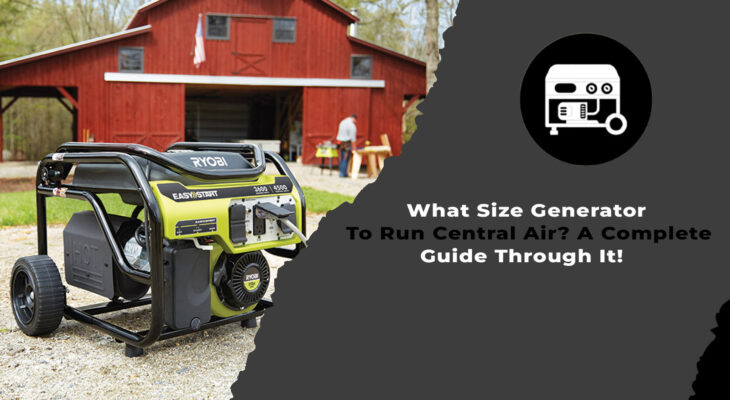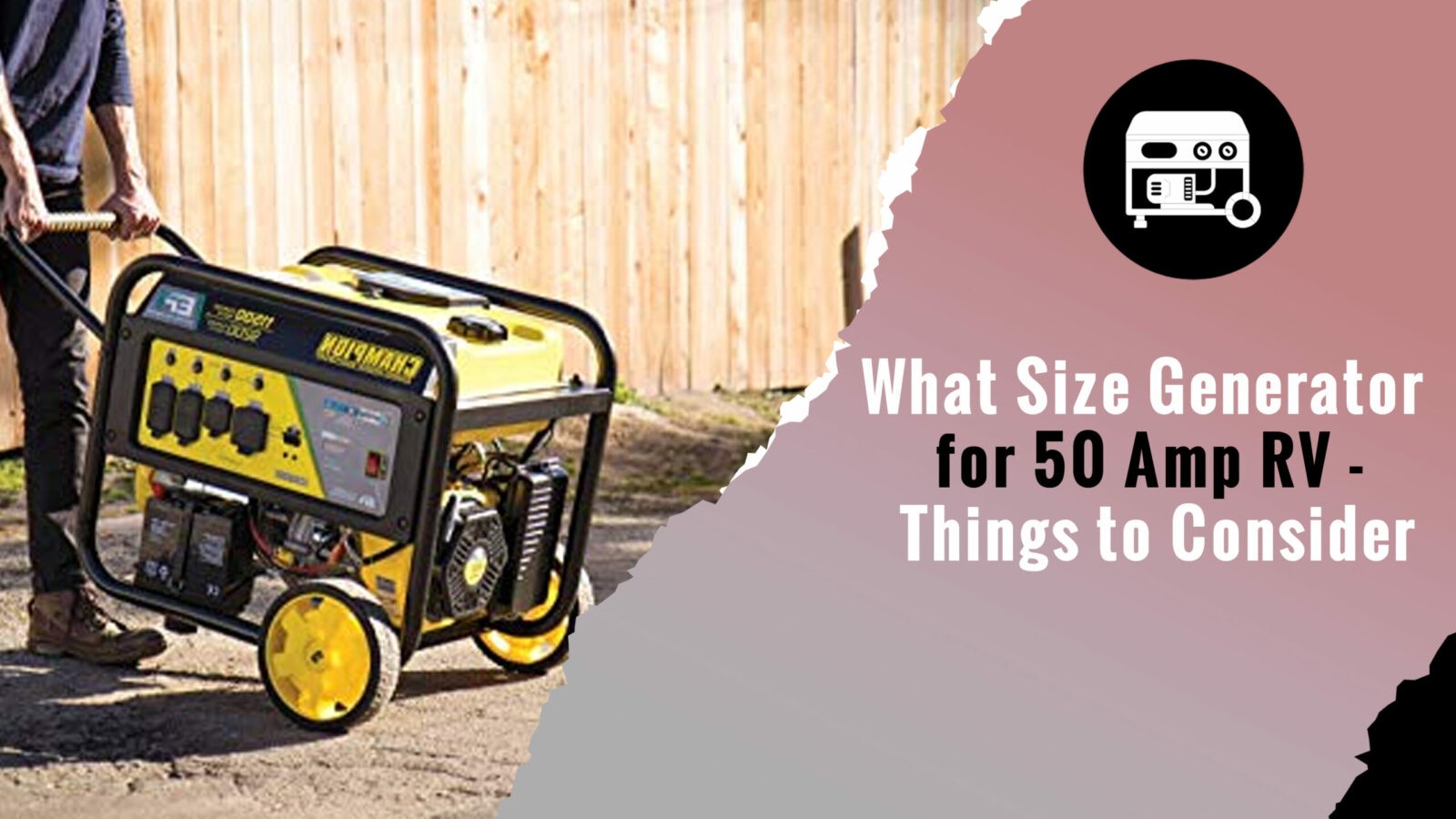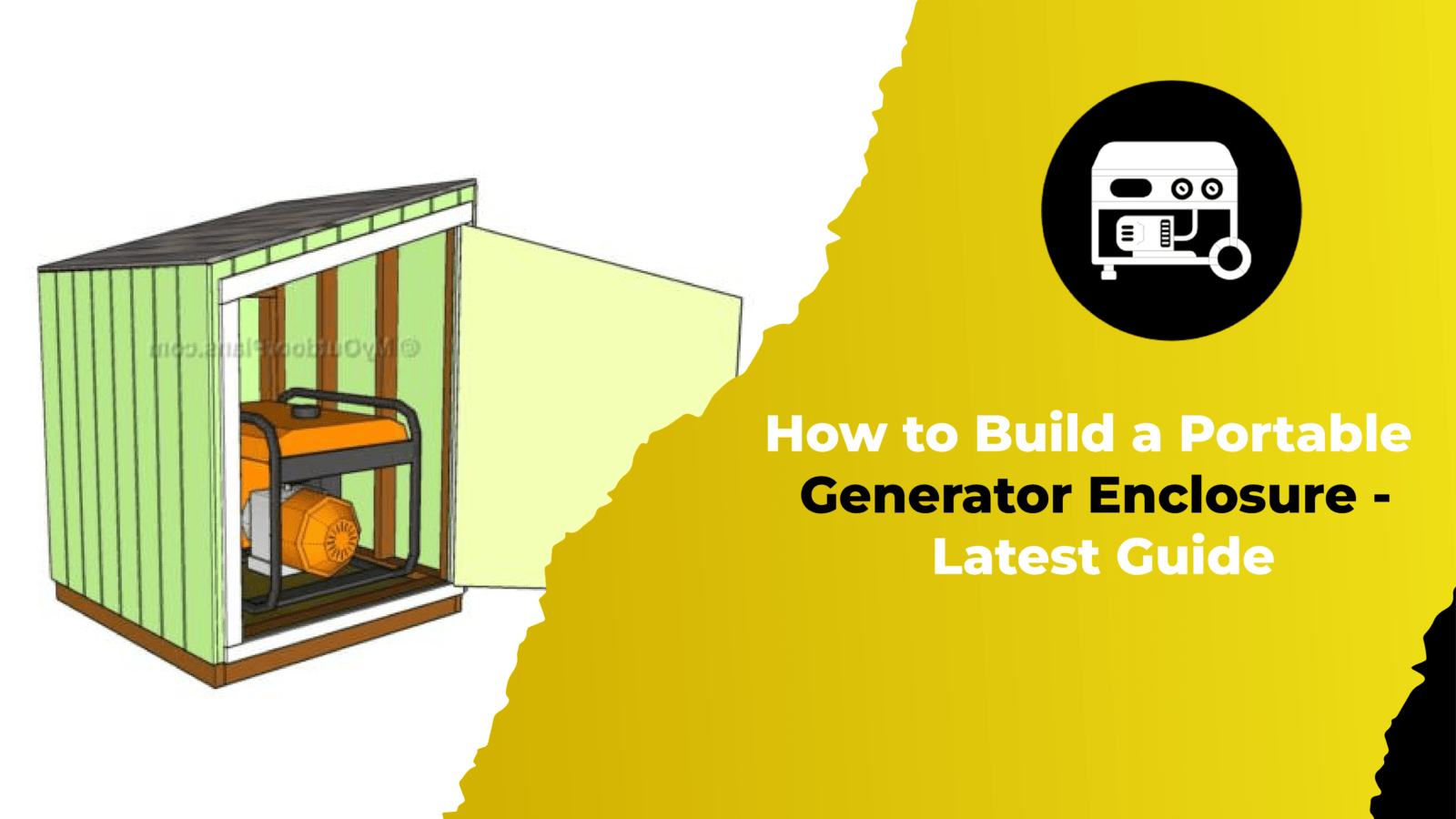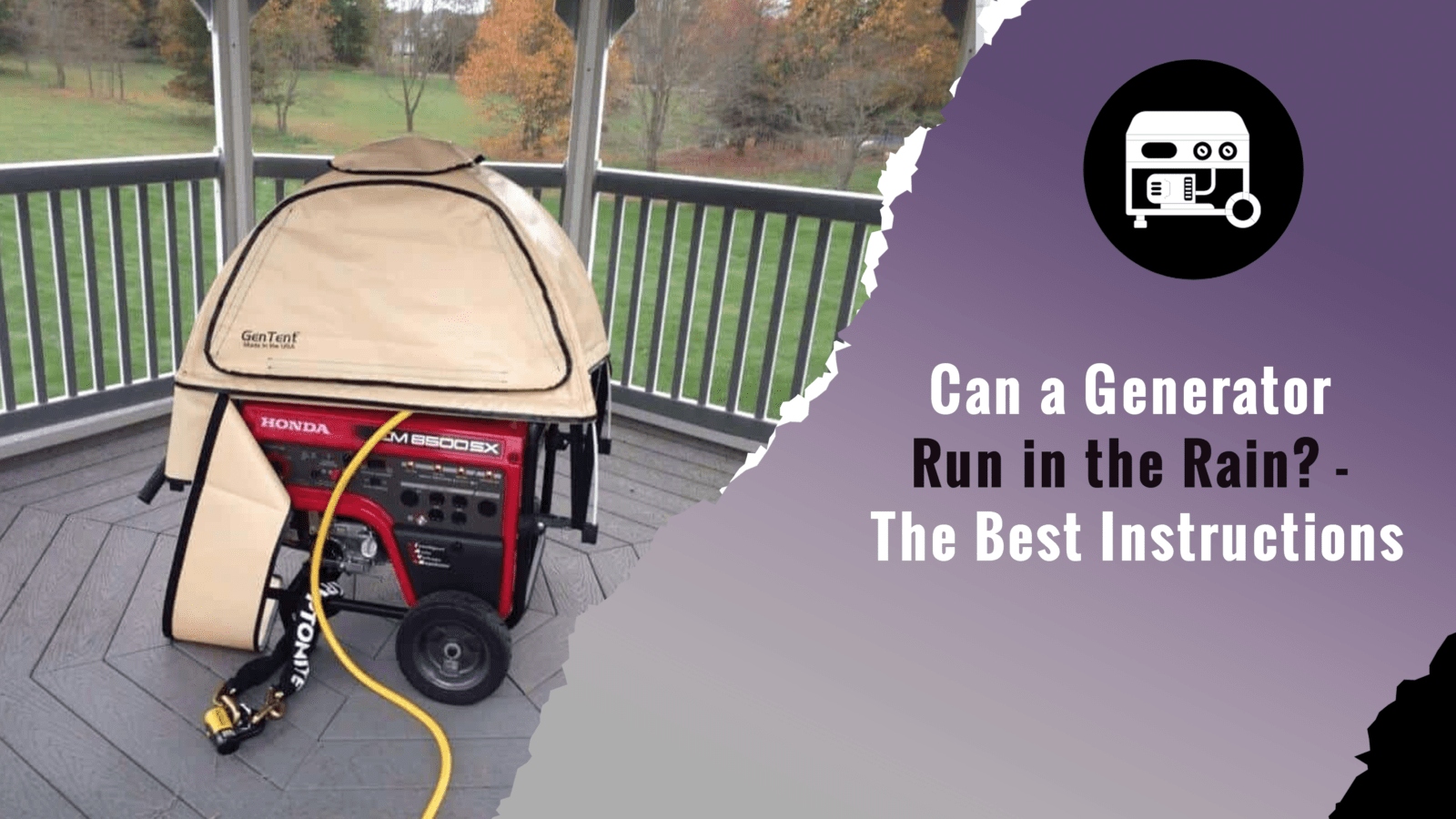Looking for the right generator size to run your central air conditioner? Well, you’re just at the right place for all your related concerns!
This increasing heat every year is making it very difficult to survive without air conditioning units and so, they’re a must to have. But, what to do when the powers go off and you can no longer run your AC? Well, that’s where the generators come to the rescue. Although they’re usually loud and noisy but still a better choice than bearing heat and sweaty weather.
Generators cannot power everything in your home, but they can power the most vital items like fridges and air conditioners, which are the essentials in summer. Now, the real question is, what size generator would you be needing for different ACs? And this is what we’re going to be talking about in our article. So, continue reading!
Which Generator Size Should I Use to Run My Central Air Conditioner?
There isn’t one air conditioner size and so, there isn’t one specific generator size you could use. When analyzing what generator size to use for running an AC, there are certain factors that need to be considered and they are as follows.
1. Your AC Size
First of all, because you’re looking for the right size generator for your AC, you must consider the AC size. For a larger space to provide cooling to, you’ll need a larger AC and so, you’ll need a bigger generator that could provide sufficient power to your AC.
Similarly, for a smaller space, a smaller AC would be sufficient enough and a smaller generator would best power this small AC. Moreover, the size also needs to be checked before you put it in the window air conditioner.
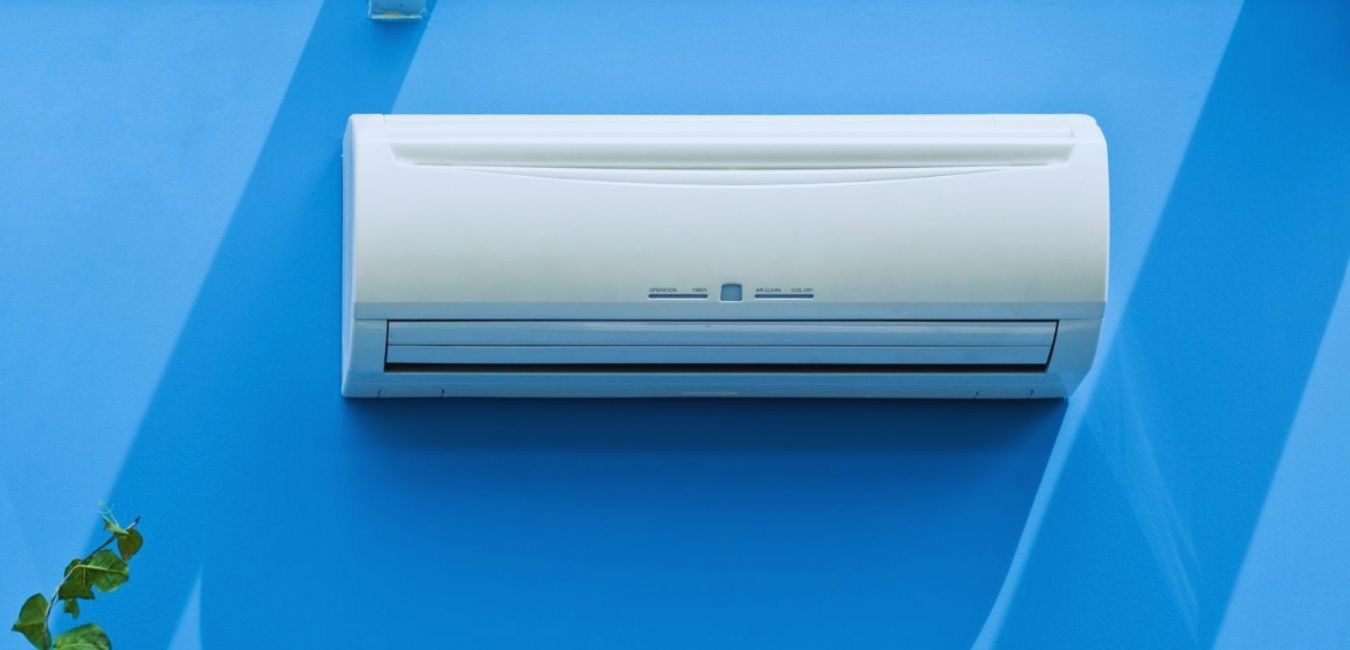
2. Wattage of Your AC
Secondly, do consider the wattage requirement of your AC because this is going to be directly proportional to the generator size you need. Meaning that, if your AC requires more power to run, you’ll ultimately need a bigger generator that could provide that power to your AC without a problem.
3. Type of Your AC
The third factor to consider is the type of AC you have. An inverter-powered central air conditioner, for instance, will require a generator with a higher wattage rating.
4. Fuel Type
Lastly, the fuel type you could afford is also important to consider when choosing a generator to power your AC. For example, in contrast to propane or gasoline, you’ll need a larger generator if you’re planning to use natural gas to power your generator.
What is the Power Consumption of Central Air Conditioning?
Depending on the size and type of your central air conditioning unit, the wattage can vary greatly. So, a fixed amount of power consumption cannot be described.
In general, central air conditioners use 3,000 to 3,500 watts hourly and they can use up to 5000 watts. While window air conditioners use 500 to 1,500 watts hourly. However, a few seconds after the compressor starts, some ACs require double or triple the amount of power.
You should consult a professional or look at the manufacturer’s specifications to determine how much electricity you need. Remember, you need to know the wattage rating of your generator before determining what size you need.
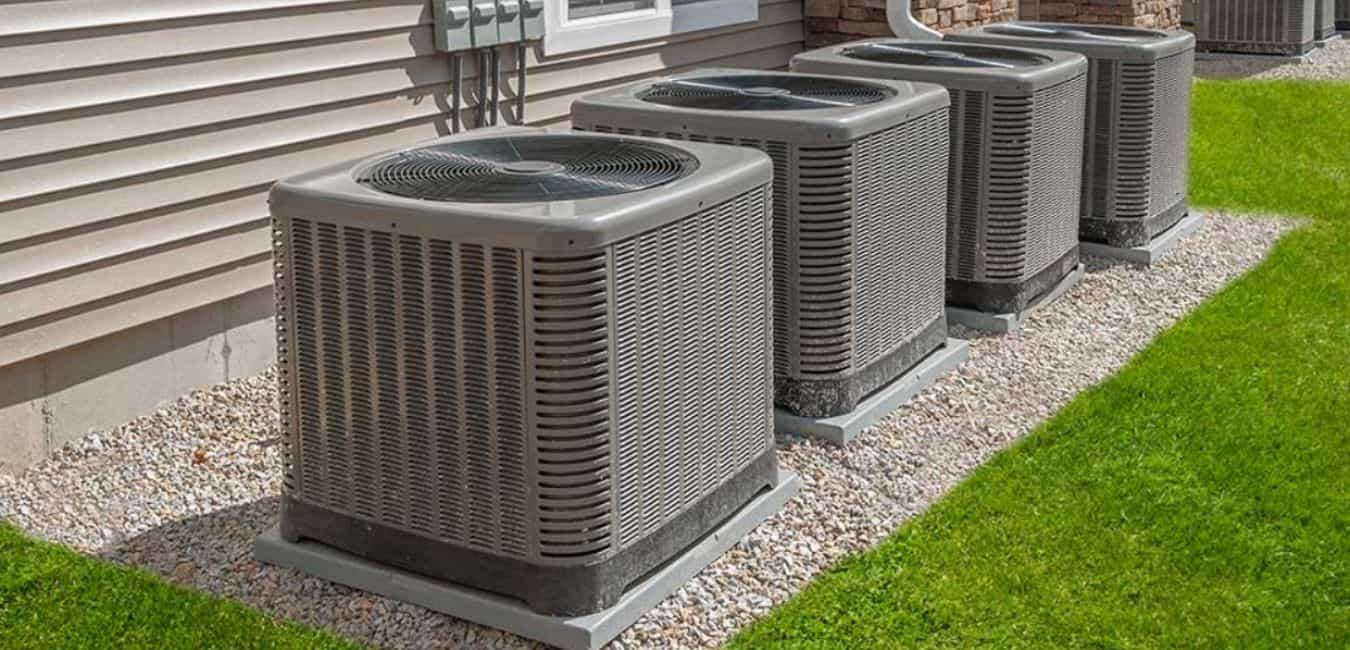
Calculating the Generator Size for Running an AC
When calculating the right generator size to power your AC, here are the two most important things you need to consider.
Running Wattage of AC – This is the power in watts that your AC needs to run and most of the ACs have it labeled on them, so it won’t be a problem to determine. Typical window air conditioners use 1,000 watts, for example.
Surge Wattage or Start-Up Wattage – To start an AC unit, this amount of power is required. It can be three times higher than the running wattage. You can find the startup or surge wattage in the AC unit’s owner’s manual or on the generator specifications.
Here’s how to calculate the size generator you’ll need based on your total wattage requirements:
Generator size = (total wattage requirement) + (surge wattage)
Here are a few points for a better understanding that might be helpful for you.
- A generator that can provide the wattage necessary for an AC unit can be selected once you know the wattage requirement.
- It might be necessary to start a standard window air conditioner with 2,000 watts and run it with 1,000 watts. If this is the case, you will need a generator rated at least 1,000 watts of running power and 2,000 watts of surge power.
- You can use the AC Unit Size instead of the wattage size if you cannot find the wattage size on your AC.
- And by dividing the number of BTUs by 12,000, you can calculate the number of tons.
Below is a table showing how Watts is determined by the size of the AC unit.
Importance of Getting Your Hands on Just the Right Size Generator!
Here’s why it’s extremely important to buy the suitable size generator that your central air conditioning units need.
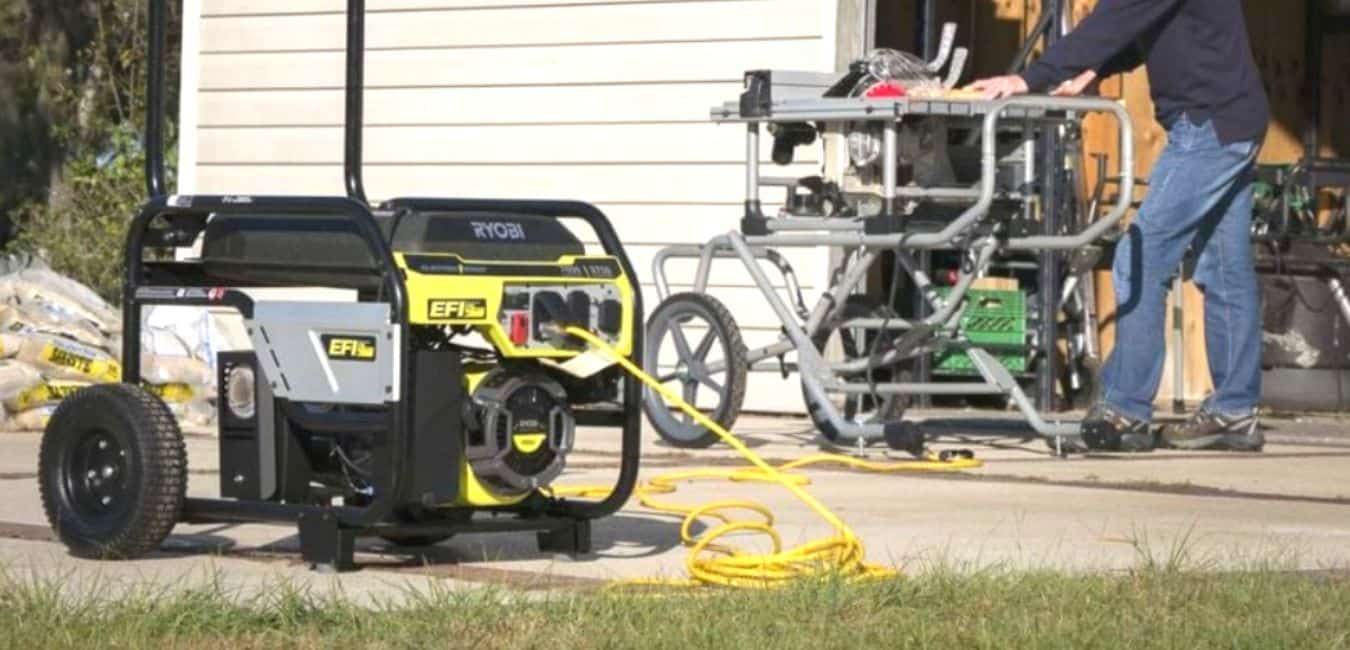
For the Efficiency Purpose – Your generator will have to work harder to generate the power it needs if it is too small to run your central AC unit. As a result, operating costs may rise, and efficiency may be reduced.
On the other hand, when you buy a generator too large for your air conditioner, it will run less efficiently and cost you more to operate.
To avoid both these situations, you need to make sure you’re spending on the right size generator.
To Ensure Safety – An AC unit powered by a small generator can also be dangerous. It is possible for the generator to fail to provide enough power to run your central air conditioning, leading to dangerous situations like overheating and electrical fires. So, you need to avoid such a situation by choosing the most suitable generator for your needs.
Saves You Money in the Long Run – It is also possible to save money in the long run by purchasing the correct size generator. Purchasing a small generator now can lead to purchasing a larger one later on, which sums up to a greater cost of course.
Similarly, an oversize generator can increase your budget by adding unnecessary expenses because you’ll be using more power than you need. So, choose wisely.
Types of Generators for Powering an AC
For powering an AC, there are different types of generators that could be used. They are:
Gasoline Generators
These are the most commonly used ones. They are very easy to operate, use gasoline to run, are portable, and are usually used for emergency purposes. However, they’re very loud and release harmful fumes.
Propane Generators
Propane generators are easy to store even if it is for a long time. Gas-powered generators may be cheaper upfront, but propane-powered generators may be more cost-effective in the long run and Propane has a much longer shelf life than other fuel sources.
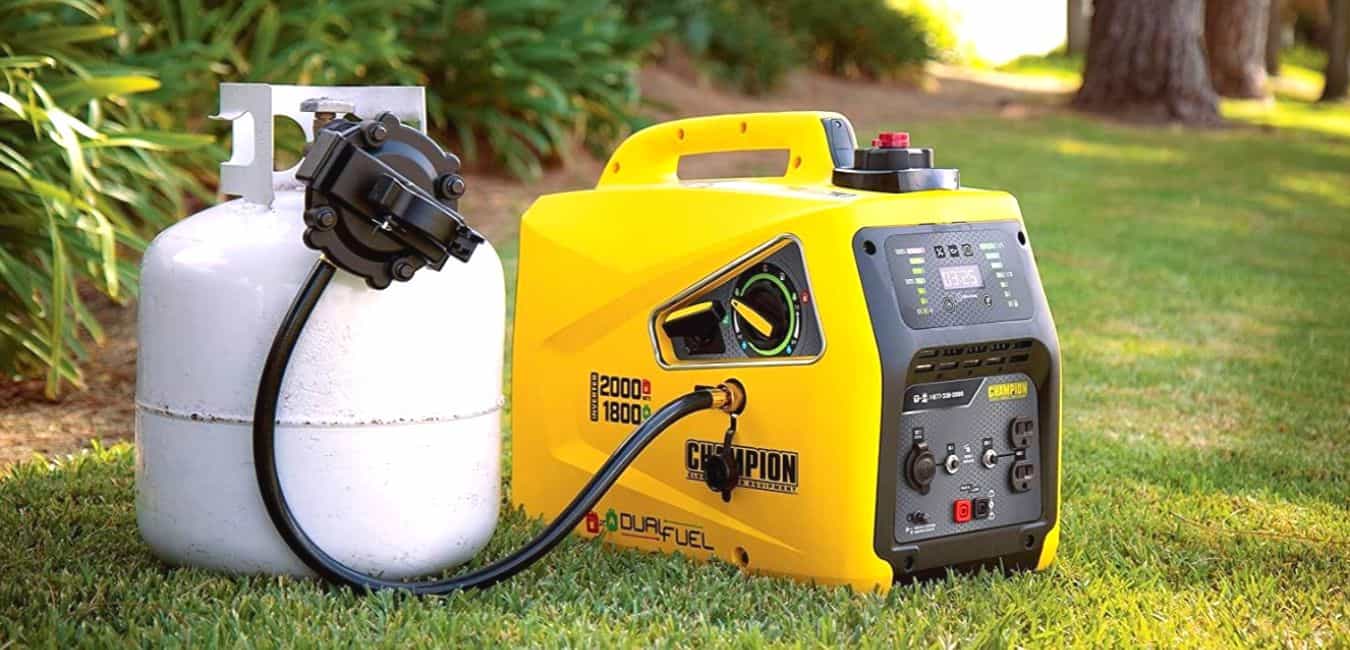
Solar Powered Generators
These are obviously powered by solar energy. In comparison with other types of generators, these offer the most environmental benefits. However, the maintenance and cost of these systems are higher.
Otherwise, they’re not loud at all and they don’t release harmful fumes. They’re pretty much easy to use and are portable as well.
Portable Power Stations
It is also possible to power an air conditioning unit with a portable power station. They are battery-powered generators and do not use fuel to or gasoline to operate.
Since they contain no moving parts and no engine, they are quiet, easy to maintain, and don’t pose a fire hazard. In addition, they do not emit carbon dioxide, which makes them safe for indoor use. Moreover, due to the fact that they convert alternating current (AC) from direct current (DC) of the battery, therefore, they can power electronic devices such as phones and laptops.
Read Generator Management Tips here.
How Much Power Would Be Sufficient for Running an AC?
Described below are some of my observations related to if certain watts would be enough to run your AC.
7500 Watts
The typical air conditioner can be powered by a 7,500-watt generator. But it may be necessary to choose a larger generator if your generator also powers other appliances or electronics.
10000 Watts
Your central air conditioner will remain operational for long periods of time when you have a 10,000-watt generator. But for an exact calculation, your AC unit’s size and efficiency will determine the amount of power required.
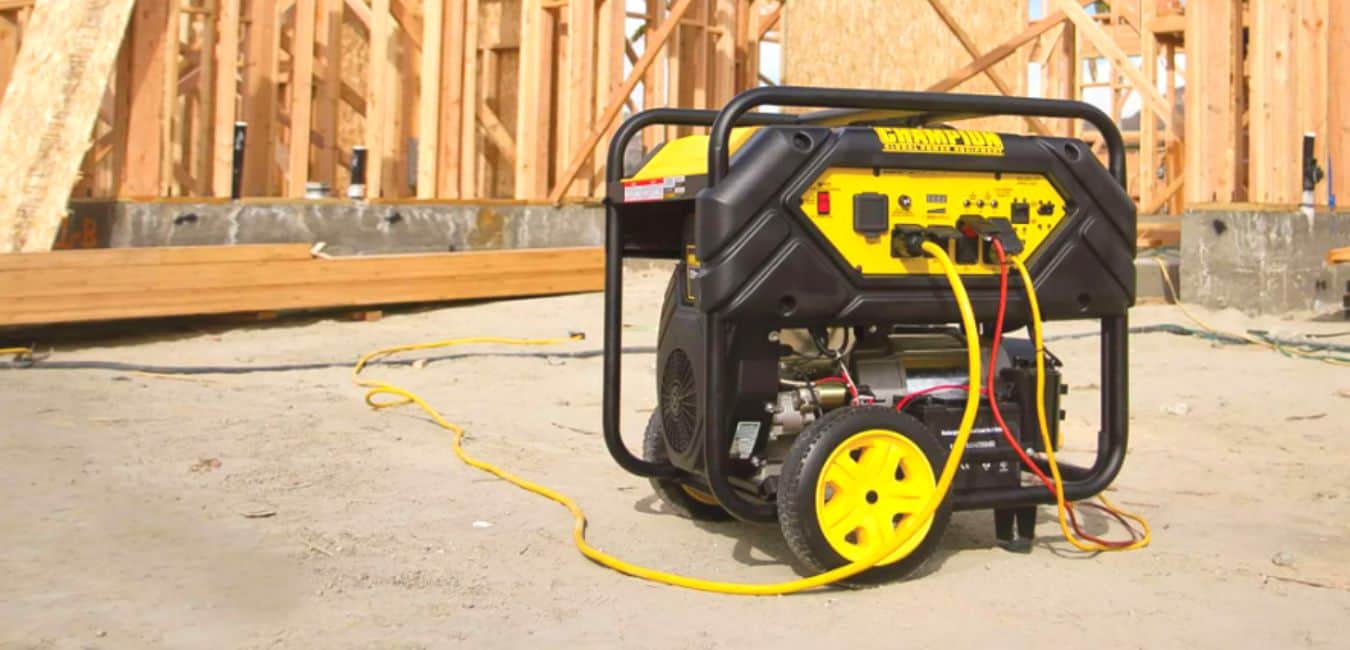
12000 Watts
Power requirements depend on the type of air conditioner, but a 12,000-watt generator can provide enough power to run one. Although it will take between 3,000 and 3,500 watts to run a standard central air conditioner, many improved models are energy-efficient, and they require just 1,000 to 2,000 watts of power.
If you want to avoid overspending on your generator, make sure you check your AC unit’s specific requirements before buying one.
3.5 Kilo Volt Amperes (1000 Volt Amperes)
An AC unit of 24,000 BTU is known to be powered by a 3.5 KVA generator producing 2,800 watts. It is assumed, however, that the generator only powers the AC unit. The same generator may be damaged if you run multiple appliances or devices off of it. In fact, connected devices such as refrigerators can also be damaged.
What Size Generator To Run Central Air – FAQs
Conclusion
We hope we’ve been helpful in providing you with the information you were looking for.
Ending our article here, with an important note: it is highly recommended that you consult a professional or check the manufacturer’s specifications to determine how much electricity is required.


